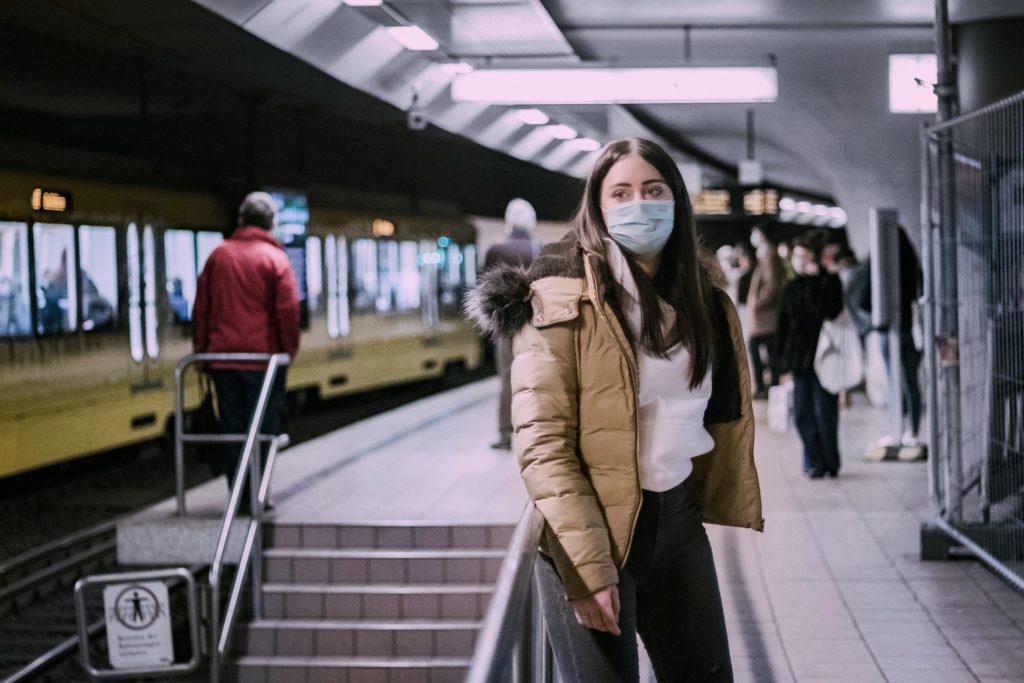
Human parvovirus is on the rise: What to know about the seasonal illness
The CDC issued an advisory for the United States after its European counterpart reported high numbers of parvovirus cases in 14 countries.
A highly contagious seasonal respiratory virus known as parvovirus B19 is on the rise in the United States, the Centers for Disease Control and Prevention said in a health advisory, noting a particularly pronounced surge among children ages 5 to 9. Sometimes referred to as “slapped cheek disease” because of the face rash it can cause, the illness caused by human parvovirus is typically mild in children and healthy adults and does not require significant treatment. However, certain groups, including those who are immunocompromised and those who are pregnant, face increased risk should they become infected. WashPost.

Listeria outbreak tied to nondairy milk blamed for third death in Canada
Canadian health officials say 20 people have been sickened by 18 nondairy milk products under Silk and Great Value labels.
… The country’s Public Health Agency had previously issued a recall and warned customers about 18 products sold under two brands, Silk and Great Value, telling them not to consume, sell, serve or distribute them. The items include various refrigerated beverages made from almonds, coconuts, oat and cashews, according to the Canadian Food Inspection Agency. It has shared a detailed list, including the specific product codes and best-by dates. None of the recalled products are distributed outside Canada, according to Danone, the French company that owns Silk. WashPost.

Late-Summer Travel Plans? You Might Want to Put on a Mask.
With U.S. Covid-19 cases at very high levels and new vaccines still several weeks away, we asked experts for their advice on when and where to wear a mask.
The C.D.C. urges travelers to “consider wearing masks in crowded or poorly ventilated indoor areas, including on public transportation and in transportation hubs.” NYT.
Mpox In Africa: New Strain Declared A Continental Public Health Emergency
Mpox, the high infectious disease that used to be called monkeypox, has been declared a public health emergency in Africa by the continent’s top health body. Scientists from the Africa Centres for Disease Control and Prevention (Africa CDC) say they are alarmed by the speed at which a new strain of mpox has been spreading. Since the beginning of the year, more than 13,700 cases and 450 deaths have been recorded in the Democratic Republic of Congo. The virus, which can cause lesions across the whole body, has spread to other African countries, including Burundi, the Central African Republic (CAR), Kenya and Rwanda. BBC.
Feeling old? Your molecules change rapidly around ages 44 and 60, study says.
Scientists observed two massive molecular shifts during midlife in the human body. They say it underscores how uneven the aging process can be.
… The exact reason for why these molecular changes cluster at the mid-40s and 60s is unclear. But the study’s authors say their findings show that from your 40s, people stand to gain particular benefits from taking care of their health. This includes getting regular medical check ups — at least twice a year once you hit your 40s, suggests Shen — as well as making lifestyle adjustments. WashPost.
Unprecedented number of heat records broken around world this year
Exclusive: In 2024, 15 national temperature records have been set as weather extremes grow more frequent, climate historian says
… The geographic range of all-time national records is staggering. Mexico tied its peak of 52C at Tepache on 20 June. On the other side of the world, the Australian territory of Cocos Islands tied its all-time high with 32.8C on 7 April for the third time this year. But the fiercest heat has concentrated on the tropics. On 7 June, Egypt registered a national high of 50.9C at Aswan. Two days before that Chad tied its national record of 48C at Faya. On 1 May, Ghana hit a new peak of 44.6C at Navrong, while Laos entered new heat territory with 43.7C at Tha Ngon. Herrera said the tropics had set records every day for 15 months in a row. TheGuardian.
Most Women Oppose Leaving Abortion Laws To The States, Across Party Lines: Poll
Three quarters of reproductive age women in the United States oppose letting states decide whether abortion is legal, including large majorities of Democrats and independents, according to a new survey. At least half of all women aged 18 to 49 said they opposed the state-by-state approach regardless of party affiliation, according to the survey released Wednesday from health policy research group KFF. TheHill.
Missouri Voters Will Decide Whether To Legalize Abortion In November
Abortion will be on Missouri’s statewide ballot in November. An initiative petition to enshrine the right to abortion up until the point of fetal viability received final approval Tuesday, securing a place on the general election ballot. If the measure receives a majority of votes, Missouri could become the first state to overturn an abortion ban through a citizen-led measure. Abortion is illegal in Missouri, with limited exceptions only in cases of medical emergencies. There are no exceptions for survivors of rape or incest. If the amendment receives more than 50% of votes in approval, the measure would legalize abortion up until the point of fetal viability, an undefined period of time generally seen as the point in which the fetus could survive outside the womb on its own, generally around 24 weeks, according to the American College of Obstetricians and Gynecologists. Missouri Independent.
Florida Abortion Amendment Has Strong Support, Poll Shows
More than half of Floridians support overturning a state abortion ban, according to a new USA TODAY/Suffolk University/WSVN-TV poll. But with 60% of voters required to approve a constitutional amendment, the race is too close to call… Results of the USA TODAY/Suffolk/WSVN-TV poll showed 58% of respondents … said they support the amendment versus 35% who don’t. Although that’s just short of the 60% needed to pass the amendment, experts say they wouldn’t be surprised if that gap closes by November. With the poll’s 4.4% margin of error, it’s possible that as many as 62% of voters or as few as 54% support abortion rights. USAToday.
Opinion: Are We Thinking About the Youth Mental Health Crisis All Wrong?T
he mental health of adolescents and young adults has been on the decline and it’s partly because of “harmful megatrends” like financial inequality, according to a new report published on Tuesday in the scientific journal The Lancet Psychiatry. The global trends affecting younger generations also include wage theft, unregulated social media, job insecurity and climate change, all of which are creating “a bleak present and future for young people in many countries,” according to the authors. The authors argue that mental health is not merely an individual issue to be tackled after someone becomes unwell; it is also necessary to focus collectively on the environmental, social, economic, political and technological changes that contribute to mental distress. NYT.
Opinion” The next balancing act in health equity: Obesity
Access to new weight-loss medications remains out of reach for large swaths of Black America.
… Nearly half of Black Americans — including almost 60 percent of Black women — are living with obesity, which kicks the door wide open to hundreds of other related conditions, including Type 2 diabetes, cardiovascular disease, stroke and high blood pressure. Yet despite rates of obesity among people of color that clearly eclipse those of White Americans, access to anti-obesity drugs remains out of reach for large swaths of Black America, including millions who are denied access to it by programs such as Medicare. WashPost.
Opinion: Kamala Harris Had a Great Health Care Idea in 2019. She Should Embrace It.
… The basic idea of the public option is that Americans without secure private insurance should have the ability, no matter their age, to enroll in Medicare (or a public plan like it). Workers without coverage at work could be enrolled, while employers burdened by high premiums would be given the ability to buy affordable coverage for their workers through the public option. This broad approach could cover everyone, expand the ability of the government to bargain for better prices and put competitive pressure on private insurers to improve their own performance… NYT.


